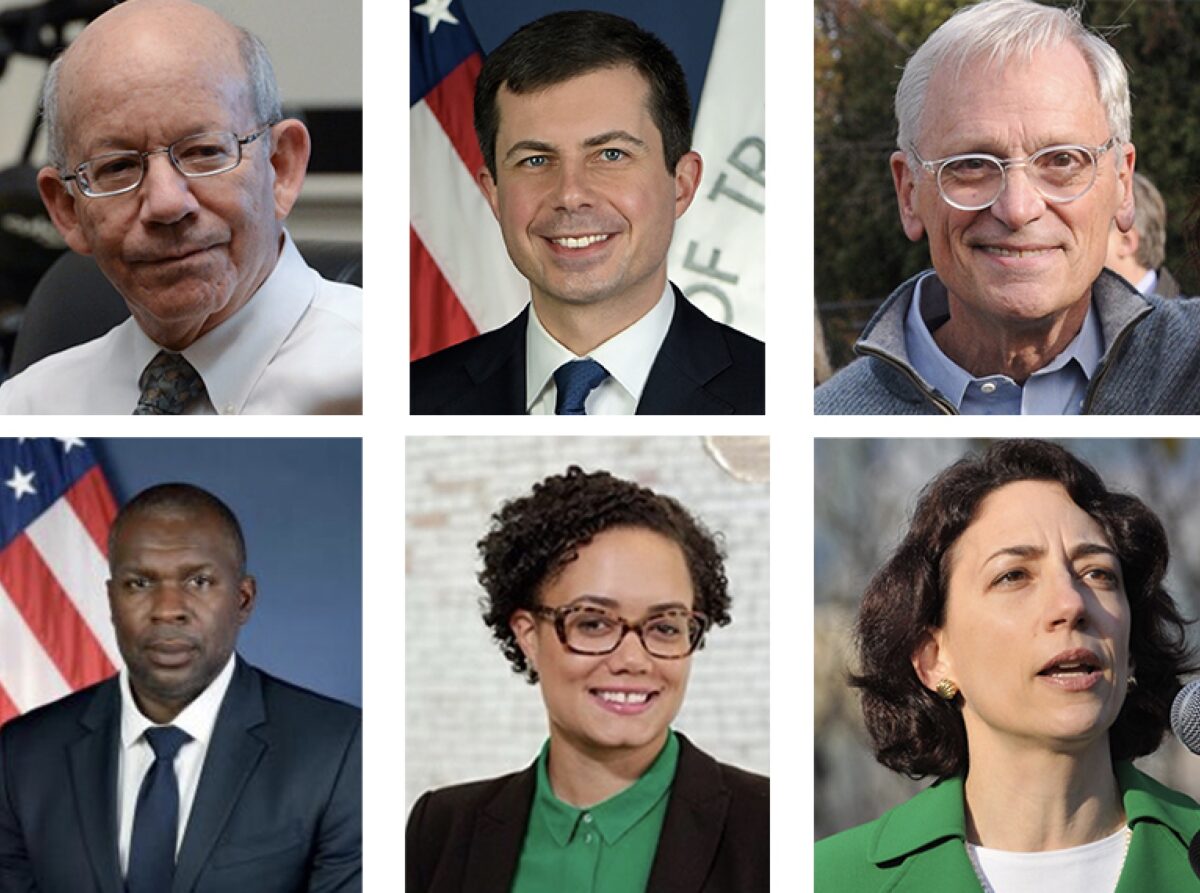“What we don’t need is to be involved with a kind of navel gazing and being distracted by one or two things.”
— Earl Blumenauer, U.S. House of Representatives
There’s a lot of excitement and optimism about President Joe Biden’s Infrastructure Investment and Jobs Act (IIJA) swirling around Portland transportation circles these days. Advocates are prepping lobby efforts to get what they want, electeds are eager to “bring home the bacon” and use the funds to cement legacies, and agency staffers are busy setting up public processes to garner feedback for how it should be spent.
For Portland’s most high-profile transportation infrastructure advocate, U.S. Congressman Earl Blumenauer, the $567 billion is a “once in a generation opportunity” for our region. That’s how he framed the IIJA during remarks at the outset of Metro’s Joint Policy Advisory Committee on Transportation (JPACT) last Thursday. The influential committee is made up of 17 officials including Portland City Commissioner Jo Ann Hardesty and mayors and agency leaders from across the region.
Given Blumenauer’s stature and tenure (the 73 year-old has served 26 years in Congress and has held elected office since 1979), as I listened to his comments at JPACT it was like hearing a coach give his players a pep talk to inspire a big win on the playing field.
In this case, the game is to bring as much money home from the IIJA as possible.
Advertisement
Even though the bill that passed wasn’t exactly what Blumenauer and Oregon’s other influential infrastructure champion, Congressman Peter DeFazio, wanted, Blumenauer said it’s “amazingly good”.
“There’s a lot here. There’s a lot of discretion on the part of the federal government that is leaning in our direction,” he continued. “And for the first time, in decades, we actually have an administration that is willing to invest in infrastructure. This is truly a once in a generation opportunity.”
For Blumenauer, the IIJA isn’t just about a dollar amount that could come to Oregon, it’s about how the stars have aligned to make Oregon especially ripe to win a large share of the $100 billion available in discretionary grant programs. The way he sees it, the Portland region is ready to win those funds for three key reasons.
First, he sees a leadership team at the US Department of Transportation who share the values and visions of most Portland leaders. Blumenauer said the Biden administration is “simpatico with many of our priorities around equity and safety.” He pointed specifically to Transportation Secretary Pete Buttigieg, who he called a “gifted communicator” (and ODOT finance director called Oregon’s “new best friend”) and someone who intimately understands the principles of smart transportation policy because he’s seen them in action on international study tours.

And Deputy Secretary Polly Trottenberg (“who actually runs most of the operation,” Blumenauer noted), understands Portland’s needs not only because she sat down for an interview with us during a visit back in 2011, but because she was New York City’s transportation chief while they built miles of protected bike lanes and bus-only lanes.
Blumenauer also mentioned the USDOT’s other “relationships” with our region. That was likely a reference to the two former Portland Bureau of Transportation staffers who now work for Sec. Buttigieg. Maurice Henderson, a former PBOT assistant director, is now a senior advisor to Buttigieg; and Irene Marion, PBOT’s former equity and inclusion manager, is now USDOT Departmental Office of Civil Rights director.
“So it is in many respects a dream team for us,” Blumenauer said.
Advertisement
Another reason Blumenauer thinks the Portland region has a leg-up on the competition is because we already completed a lot of the project identification and prioritization required to make an effective federal pitch during the run-up to Metro’s “Get Moving” 2020 transportation funding ballot measure.
The final feather in our region’s hat, according to Blumenauer is that Rep. Peter DeFazio is still on the team. Even though he announced his retirement last month, DeFazio is still chair of the powerful House Transportation & Infrastructure Committee for 11 more months. “[DeFazio] continues to be perhaps the most respected person in Congress, in either party in either chamber, dealing with infrastructure,” Blumenauer pointed out. “And he has an opportunity to help us in terms of guidance.”
And the clock is ticking. If regional leaders don’t come together soon, this golden opportunity could pass us by.
“What we don’t need is to be involved with a kind of navel gazing and being distracted by one or two things,” Blumenauer warned his team on Thursday. “[This opportunity] requires discipline. It requires focus. It requires compromise, and strategic thinking… the next two or three months, they’re going to be critical for us getting the most out of this.”



